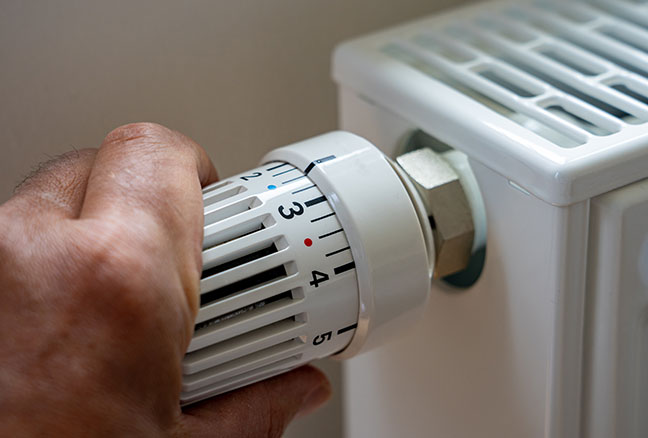Saving money. 2 simple words that mean more than you think. Every day, there are dozens of ways to reduce costs and stash some extra cash in your pocket without even realizing it. Luckily, saving money doesn’t have to be complicated or require huge lifestyle changes.
With a couple of easy habits and tricks up your sleeve, you could be pinching pennies and padding your savings account before you know it. Ready to start funding your future? Keep reading to learn some of the best daily money-saving tips to save cash with almost no effort.
Saving on Transportation Costs
Let’s start with your daily commute. Walking, biking, ride-sharing, or taking public transit are easy ways to reduce transportation costs.
Save with public transit
If buses or subway service is available in your area, make the most of it. Fares are often much less than the fuel for the same trip. Check if your city or county offers discounted transit passes or monthly passes to save even more money.
Some other tips for using public transit:
- Plan your route ahead of time. Know the schedules to minimize waiting.
- Ask about student discounts or senior rates if those apply to you.
- Ask if your employer offers any incentives for using public transit. Many do to encourage sustainability and reduce traffic.
Get Moving with Walking and Biking
If you live close enough to work or school, walking or biking could be perfect options. Not only do they offer a way to save money, but they also provide exercise and environmental benefits.
To start:
- Find safe walking or biking routes such as paths with minimal traffic and lots of visibility.
- Give yourself extra time in case of delays. It’s best to plan for unforeseen circumstances.
- Follow all safety precautions. Wear reflective and protective gear, follow traffic signs and signals, and be very visible to drivers.
- Check if your city or workplace offers resources for cyclists like bike racks, repair stations or showers. Some even provide incentives for choosing human-powered transport.
Using your own feet could save you hundreds a month in fuel and parking. You get where you need to go, save money, help out the environment, and sneak in some exercise. Now, that’s what we call an ideal commute.

Save on Utility Bills by Conserving Energy and Water
Next — lowering your utility bills also helps save money each month. Here are some tips to reduce energy and water usage in your home:
Turn off lights and electronics when not in use
Leaving electronics on when you’re not using them wastes energy and money. Make it a habit to turn them off when you leave a room or go to sleep.
- Turn off lights in unoccupied rooms. Use LED lightbulbs, which are more energy efficient.
- Enable power saving modes on electronics like computers, gaming consoles, and TVs. They consume power even when idle or on standby.
- Unplug chargers, laptops, and other devices when not in use. They draw power even when idle.
Lowering Thermostat
Heating and cooling costs make up a large portion of energy bills. Make minor adjustments to save money:
- Lower the thermostat in winter or raise it in summer by a couple of degrees. Save up to 1% each degree.
- Find a programmable thermostat to more efficiently control the temperature when you’re away from home or sleeping.
- Seal and insulate your home to improve heating and cooling efficiency. Add weatherstripping around doors and windows or install additional insulation.
Conserve water
The less water you use, the lower your water bill is. Develop water-efficient habits:
- Take shorter showers and avoid running water excessively.
- Only full loads in the dishwasher and washing machine. This saves energy in addition to water.
- Fix any leaky faucets. Even small drips waste gallons of water a day and increase your water bill.
- Water your lawn and plants efficiently and only when needed.
Making an effort to implement habit changes and efficiency upgrades significantly lowers your utility bills, which in turn lowers your credit card bill. And you’ll be doing the environment a favor by conserving valuable resources.

Stop Impulse Shopping and Only Purchase What You Need
Impulse shopping and buying things you don’t really need is one of the biggest drains that spending money has on your wallet. Make a habit of only buying what you actually need and avoid impulse purchases.
Make a List and Stick to It
Before you go grocery shopping, make a list of only the essential items you need and their quantities. Then purchase only what’s on your list. This prevents you from making impulse buys of things that catch your eye while shopping. Leave your debit cards at home if possible and only shop with the amount of cash you’ve budgeted.
Store Brands Over Name Brands
Go for store brand items over name brands. They often cost significantly less while being just as good. Things like food staples and household supplies.
Shop in Bulk When Possible
When it comes to non-perishable items you use frequently — find the largest size available. Things like rice, beans, oats, toilet paper, and laundry detergent could often be purchased in bulk at warehouse stores. The larger sizes are more economical and save you money long-term. Just make sure you have enough storage space and will actually use the amount before the expiration date.
Avoid Ready-Made Meals and Snacks
Ready-made meals, snacks, and beverages are expensive and highly processed. Make your own meals, snacks, and drinks at home using whole foods. Cooking at home is much more budget-friendly and healthier.
Following these simple tips to stop impulse shopping and only buy what you truly need could have a huge impact on your monthly budget, and finances over time. Make it a habit and watch your savings grow.

Be Smart With Your Finances
Lastly — managing your finances properly allows you to save money without changing your life whatsoever. Some tips:
Explore Money Market Accounts
A money market account is a type of savings account that typically pays higher interest than a regular savings account. Your money is very liquid, meaning you’re able to withdraw it at any time.
Cash-Back Credit Cards
Using a cash back credit card on all your purchases is an easy way to save money on things you buy every day. Find a card that offers at least 4-5% back on all purchases. Some cards offer higher rates for bonus categories like dining, travel or gas.
Open a High-Yield Savings Account
A high-yield savings account is similar to a money market account but may have slightly lower interest rates. However, the rates are still higher than most standard savings accounts. Your money stays very liquid in a high-yield savings account, so you could withdraw it at any time.
Avoid Interest by paying off credit card debt
Make paying off your credit cards each month a priority in your budget. You don’t have to pay all the money, but try to pay at least the minimum amount due on each card. Then, put as much extra as you can towards the card with the highest interest rate. Once that’s paid off, move on to the next highest rate. This is known as the “debt snowball” method and it helps you pay off debt faster while avoiding paying interest.
Apply to EASY Wireless’ Free Phone Program!
We hope that after reading this blog, you’re ready to start saving money on a daily basis. But what if we told you that there were not only simpler ways to save money, but ways to pretty much get free money?
Like applying to EASY Wireless’ free phone plan! We offer free phone service through the Federal Lifeline Program. If eligible, here’s what you receive:
EASY Wireless FREE Service Plan
- FREE Data
- FREE Unlimited Talk
- FREE Unlimited Text
- FREE SIM Card Kit and Activation
- Choose to Keep Your Number or Get a New One
To start with EASY Wireless, apply online by clicking the below:
Start Saving Today!
Start Saving Today!
Or you can come to one of our EASY Wireless’ retail stores, where our customer service agent will help you apply for your benefits.


